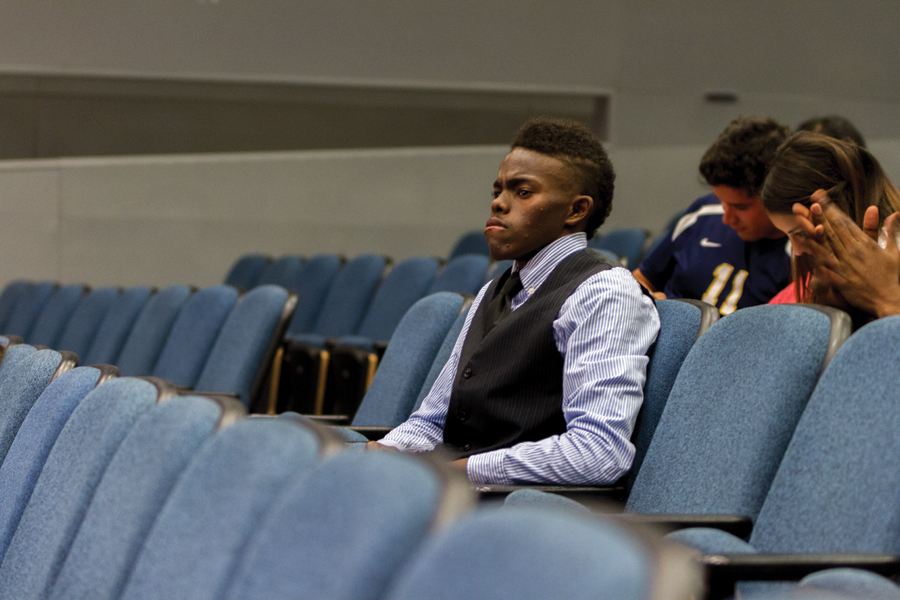
Members of ASUCR issued apologies during last week’s senate meeting, with some expressing regret for giving late notifications to seven candidates who were found to be ineligible to run in the 2014-15 elections.
“On behalf of the elections committee, I apologize to all the candidates who were disqualified on such short notice,” said Senator Niela Darmani. “Regardless, we did put (the disqualification decision) to vote (and) the senate did vote to not allow it to pass.”
A special senate meeting was held on April 21, where a few disqualified candidates attempted to appeal a previous judicial branch decision, ruling that candidates were ineligible to run. Some candidates cited poor grades as the reason behind their disqualification. Senators voted to support the judicial branch ruling, but Outreach Director Mina Kato attempted to reconsider the vote, which President Sai Patadia believed to be “illegitimate.” The meeting was effectively halted after Patadia encouraged members of the senate to leave the senate chambers to prevent Kato’s motion from going through.
UCR student Arturo Gomez described the April 21 senate meeting to reconsider the disqualifications a “farce,” stating that members of senate behaved in an “unprofessional” manner by leaving during the middle of the meeting.
“When there’s a civil discussion, you don’t shout at people and tell them to get up and leave. You were elected to be professionals (and) you were elected to do your jobs,” explained Gomez.
Kato explained that the motion was made after hearing different interpretations of the constitution and the motion was not out of malintent toward the senate. “I felt like I could make a motion with additional information and multiple views on the constitution,” said Kato.
Abstaining from the special vote to reconsider, Senator Jessica Moncayo referred to Robert’s Rules of Order — a constitutional framework for holding student government meetings — which stated that members of the senate are allowed to reconsider a vote as long as it is a “hasty action” to correct any votes believed to be erroneous.
Despite the roundtable apologies initially given, President Sai Patadia said he could not apologize for the overall disqualification process. “I do not apologize for standing up for what I thought was going to be an illegitimate vote, but I do apologize for the procedure and how you were notified late,” he said. “I think it’s important that every association acknowledges where it should improve.”
On the other hand, Senator Abraham Galvan held fast to the belief that members of the senate who walked out of the special meeting could have made other choices instead.
“You might’ve disagreed with (the decision to reconsider), you might’ve thought it was wrong, but you could’ve voted against it, you could’ve abstained from it, you could’ve submitted a case to the judicial branch if you thought it was inappropriate,” he said. “There’s a lot of things that you could’ve done besides encouraging people to get up and leave the meeting when there were still people in the galley ready to talk to us.”
After a long discussion, Moncayo later encouraged Gomez to be proactive about any cases of perceived misconduct or alleged unfairness in the future senate.
An omnipresent silence fell upon the Senate chambers toward the end of the meeting as senators took a moment to recognize the following historical events: the Fall of Saigon (1975), the Armenian Genocide (1915-1923), and the Holocaust (1933-45).
The Fall of Saigon marked the end of the Vietnam War and the start of a transition period leading to the formal reunification of Vietnam into a Socialist Republic governed by the Communist Party. Another historical event that was brought up was the Armenian Genocide, which the senate previously declared a day of remembrance for on April 24. The occurrence is seen by many as the Ottoman Empire’s systematic extermination of the Armenian people during and after World War I. The Holocaust was the genocide of approximately six million Jews by Nazi Germany during World War II.








